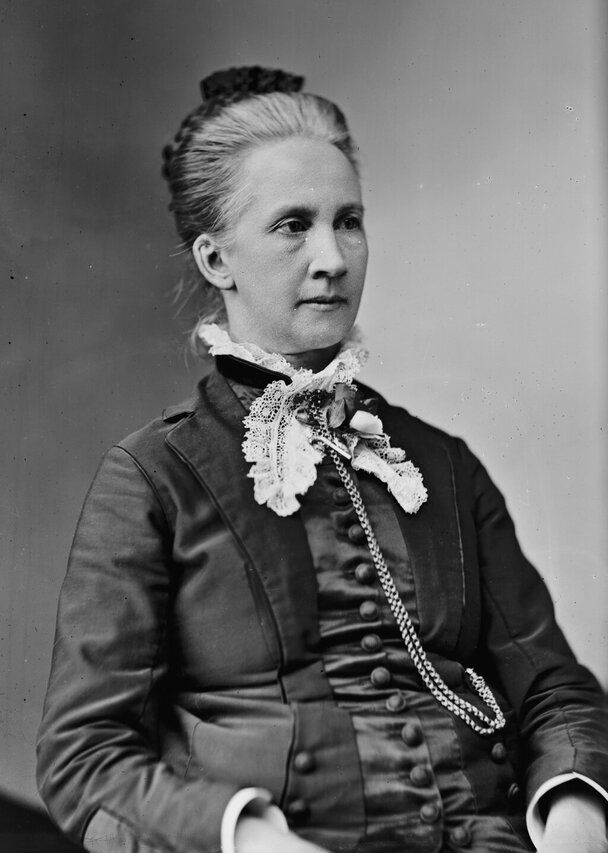Belva Lockwood - Washington, D.C.
Born In Niagara County, NY, Belva Lockwood was a feminist trailblazer in education, law, politics, and equal rights for women.
In 1866, Niagara County, NY native Belva Bennett McNall was 36 and had already faced a lifetime of sexism. She was widowed and had a teenaged daughter named Lura. She had earned a teaching degree and had worked at several schools. Since her college days, “Belva had grown increasingly interested in the study of law and how it could be used to assist women in achieving more equitable rights [….].”
And so, Belva moved to Washington, D.C. in 1866. She opened a co-educational school where Lura, now 17, taught French and Latin. In 1868, Belva married Dr. Ezekiel Lockwood. He “was a dentist, Baptist minister and a Civil War veteran who supported women’s rights and encouraged Belva in her education and career aspirations.”
“After being rejected by Columbia Law School on account of her sex, she applied to the recently established National University in Washington and was accepted along with 14 other women.” Two years later, the university refused to grant Lockwood her hard-earned diploma because she didn’t attend some required lectures. In actuality, the male faculty had prohibited her and another female student from attending the lectures. She “later learned that many of their classmates did not wish to be in a graduating class that included women.”
True to form, Lockwood revolted. She “wrote two letters to […] President Ulysses S. Grant who was also the president of National University. The first letter stated her grievances and asked for her diploma; her second letter demanded it. She did not receive a response from Grant but did receive her diploma a few weeks later, signed by Grant himself.” She was finally admitted to the District of Columbia bar and was licensed to practice law in the nation’s capital. She opened her law practice in 1873.
Lockwood “tried cases in civil and criminal court and represented thousands of Civil War veterans and their widows in their efforts to receive government pensions.” She also represented other disenfranchised groups including women, African Americans, and Native Americans.
As one of the first female lawyers in the United States, Lockwood faced even more sexism in the courts. “Several states denied her admission to their bar associations and she was not allowed to argue cases in the [U.S.] Supreme Court.” Not surprisingly, she began fighting against this unjust law in 1874 by repeatedly petitioning Congress to change it. In 1880, Lockwood prevailed and became the first woman to argue a case before the Supreme Court. Her activism helped other women and African American attorneys do the same.
Inevitably, Lockwood made women’s rights a cornerstone of her law career and political activism. She worked toward legislation to close the gender wage gap and to help women achieve their rights in the areas of property, divorce, and child custody.
And sometimes she had fun. “She caused an uproar by becoming the first woman to ever ride a tricycle on the streets of Washington, using the newly invented machine to get to and from court. She said the tricycle was ‘just the thing’ she needed to avoid the walk home after a long day, adding that the men of Washington ‘shouldn’t have all the fun to themselves.’”
“In 1877, Ezekiel Lockwood passed away and in 1879 Lura married DeForest Ormes, a pharmacist.” Belva Lockwood was now a successful lawyer who had made history in more ways than one. But she wasn’t done yet. In Part III of our story, she will run for president of the United States.
Hope L. Russell, Ph.D.


